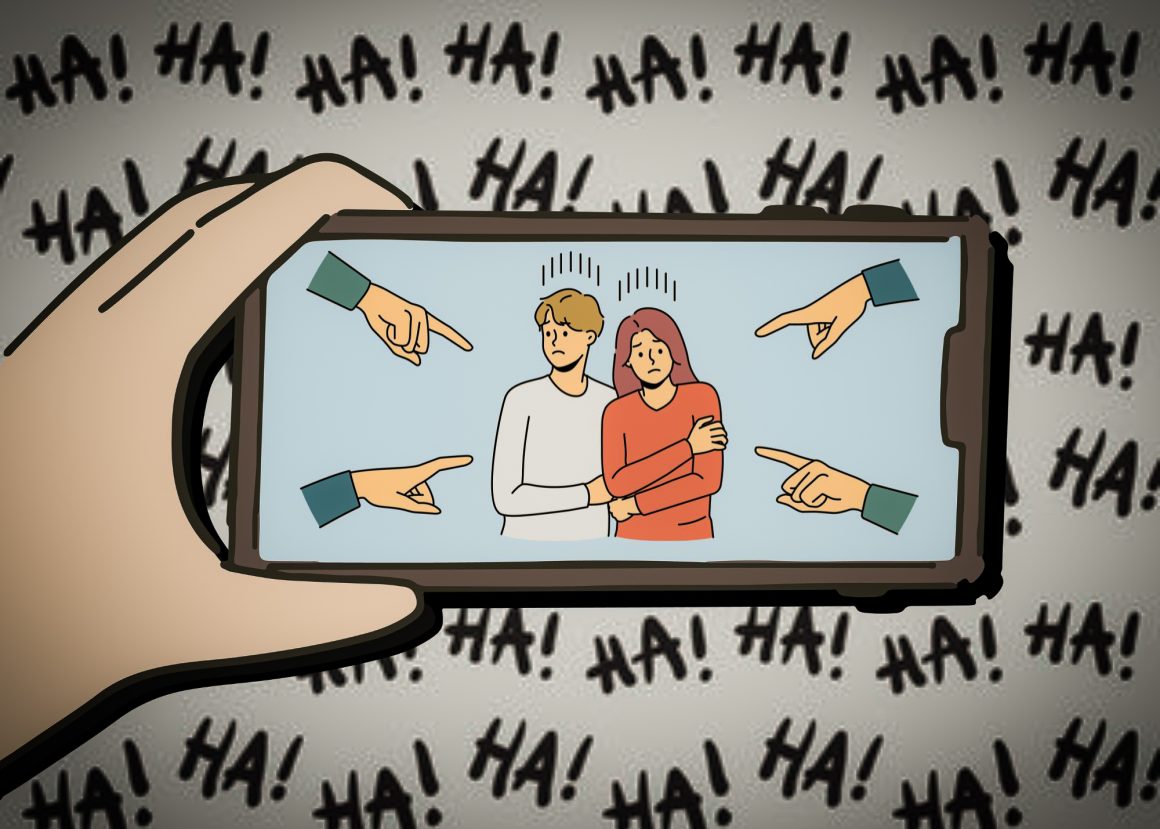
The digital milieu might be increasing trauma porn
By Grace Hagan, November 17 2023—
Trigger warning: Violence, suicide
Trauma porn is a byproduct of the digital milieu’s constant production of perfectionism. The acceleration of mediocre content creators swarmed by unmerited adoration on platforms, like TikTok appears to be a global call for immediate desirability without pedantry, honour and hard work.
One might argue that talent is no longer a criterion for attention. There has been a surge in clickbait content over the last decade depicting violent suicide and murder in the quest for fifteen minutes of fame. Talent is the primary source of social credibility. Still, our low attention spans from the constant shift in social trends imply that the definition of perfectionism is advancing. At the same time, we struggle to define what shape perfectionism must take, leaving minimal space for people to develop their aspirations because we lack patience.
Trauma porn is arguably an escape realm for those who feel dismissed, undermined and have no perceived immediate value in their community. Our lack of care towards these “dark users” interpersonal lives can be attributed to a lack of empathy, but also because human beings do not have the emotional capacity to attach themselves to every social issue, creating an entourage of resentful and envious individuals who yearn for attention.
The term trauma porn is typically associated with the exploitation of black trauma. After George Floyd, a 46-year-old black man from North Carolina, was murdered in Minneapolis by a police officer in 2020, an influx of trauma porn mocking his death began circulating the internet. Four North Carolina students from White Knoll High School recorded a TikTok video reenacting George Floyd’s death by kneeling on a consenting student’s neck while wearing a police uniform.
Exploitation is not limited to the digital realm; the medium accelerates our access to dehumanization, while exposure to trauma may disrupt our ability to be sensitized. Desensitization to trauma can be a justified byproduct of neglect, but also poor judgment and lack of emotional self-regulation.
The more an individual consumes violent content, the less likely they are to be bewildered, moved, and reactive to trauma porn. Natasha Abadilla, a neurology researcher at Stanford, explained that it is not uncommon for surgeons who save lives for a living to become desensitized to death, pain and trauma. The medical industry sustains collective health, although doctors, lawyers and police officers would not make the same monetary value without tragedies and ironically need dire times. Industry workers may have altruistic intentions, which should not be omitted from the contradicting nature of “saving people.” However, the paradox reiterates Abadilla’s point that “healthcare professionals are spending more time behind a screen, treating electronic versions of patients, losing physical Facetime with the patients themselves, and becoming increasingly impersonal, much like the backlit screens they are made to stare at.”
Ronnie McNutt, a 33-year-old Iraqi veteran’s suicide, went viral on Facebook in 2022, which exposed credulous users to his graphic death. A 10-year-old recalls “[waking] up out of her sleep crying” after witnessing the uncensored video of Mcnutt.
Cognitive Science conducted a study on selective laziness and reasoning, claiming that 56 per cent and 58 per cent of people were more likely to reject their arguments presented by someone else. Cognitive Science suggests that the same social media users spreading trauma porn would have an issue with being exploited online. We must reflect on why desensitization is the driving force for attention in our modern era, specifically, why exploitation is a medium for easy access to power online. People who feel imperfect or fragmented may use fear as a substitute for talent and attention, which is extremely harmful.
Trauma can interrupt our access to empathy, but what cannot be felt–nonchalance from overconsumption of trauma porn, can be rationalized. Everyone, regardless of creed or environmental exposure, still has the capacity to reject dehumanization, which is a privilege given to us by language and accountability both in person and inside the digital milieu. Internet moderators and strict anti-bullying policies are crucial. Still, dark Internet users are encouraged to omit their herd mentality and seek pleasure from viable sources that can convert their violations into something productive.
This article is a part of our Opinions section and does not necessarily reflect the views of the Gauntlet editorial board.
